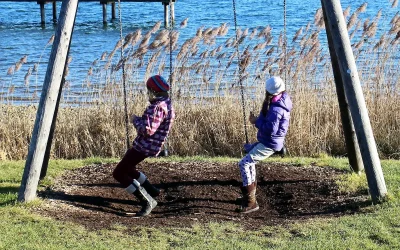A love of learning enriches the mind.
But…
Learning to love enhances the spirit and energizes the soul.
I’ve written elsewhere about early learning, including important considerations for parents and teachers, mitigating factors, developmental issues, strategies, and more. Here, however, I focus on learning to love—and, in particular, helping children learn to love what really matters for their well-being and happy productivity.
WHAT DO YOU LOVE?
“…somewhere in my secret heart, I know love will find a way.”
~ Jack A. Feldman/Tom Snow (from The Lion King 2)
Ask little ones, “What do you love?” and their answers may or may not surprise you. For example, responses might go like this: I love my parents (grandparents, family members, and friends); I love to play (hockey, or video games, or Beyblades(tm)); I love ice cream (or cheesy macaroni, or pizza, or cookies); I love my doll (or truck, or teddy bear, or Lego); I love to swim (or dance, or bake, or sing); I love to go to the park (or store, or zoo, or beach); I love to watch television (or movies, or see my friends online); I love my dog (or cat, or hamster); or I love my house (or bedroom, or backyard).
Dig a bit deeper (somewhere in their “secret heart”), and a child might reveal that they love quiet or excitement; specific times of the year; arts and crafts; bubble baths; wearing bright colors or funny hats; building structures; certain sports; knock-knock jokes; pajama days; or particular ways of doing things that make them happy. These examples require engagement, and thus children acquire experiential learning—which is integral to their personal growth. (Click here for more on that.) It’s great that children love some or all of these things, and more!
However, what additional experiences should parents encourage? What else might benefit children’s development—including their resourcefulness, resilience, and resolve? Learning to love to do things has many advantages—and there are lots of possibilities parents can consider in order to foster children’s participation, creativity, collaboration, and initiative.
In addition to supporting what children already love, here are practical ideas to help little ones become more proactive, to pursue their interests, to find new learning opportunities and fulfilling experiences, and to then follow those to their heart’s content.
LOVE OF INQUIRY
“I have no special talent. I am only passionately curious.”
“The Important thing is not to stop questioning.”~ Albert Einstein
Inquiry spurs the development of intelligence and creativity. It reinforces curiosity, ignites the imagination, and motivates learning! Inquiry directs children to meaningful answers, and it has the potential to fire up the sort of passion that will drive kids’ efforts and accomplishments. Parents can nest young children’s’ questions within a responsive and welcoming milieu by listening closely, paying attention to their viewpoints, allaying concerns, and offering reassurance. (See Responding to Children’s Questions During the COVID-19
Pandemic.)
LOVE OF BOOKS
“Books can nurture, inform, stimulate, and soothe. They can be used as a basis for sharing, thinking, learning, dreaming, inspiring, and exploring.”
~ from Being Smart about Gifted Education, p. 149.
Children who learn to love books are at an advantage. Reading helps stimulate and expand interests and understandings. It promotes reflection and self-directed learning, and it can also be …








